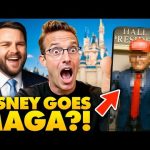In the recent political landscape, debates about power, governance, and the role of government are heating up. One significant topic revolves around the perception of Donald Trump and his influence on the American political system. The core of this discussion rests on the foundation of checks and balances, a principle designed to ensure that no one individual can seize control and transform the government into something reminiscent of the very monarchy early Americans sought to escape. The irony here is palpable and begs a closer examination.
The United States was established with a unique three-branch system intended to keep power in check. This system was remarkably intentional, a direct reaction to the tyranny faced under monarchical rule. Critiques of Trump often spin tales of dictatorship, as if the very fabric of the government is under siege by a singular force. However, it is essential to recognize that this fear would likely not have emerged had similar critiques applied equally to past administrations. For instance, Barack Obama and Joe Biden have also encountered their share of criticism, but where were these vehement objections during their terms?
Picture a scenario where government is substantially downsized, as some propose. Advocates for a “tiny little itty bitty government” suggest that reducing the federal administration would restore power to the people while reinforcing checks and balances. Such a move would empower states to make decisions suited to their circumstances, ideally leading to a more efficiently run government. However, this idea of reverting to a minimalistic government has its own complexities and raises a critical question: would it really solve the concerns over authoritarianism?
Additionally, a smaller government could indeed limit the scope of federal overreach, but it can also restrict necessary interventions that protect citizens. Across historical contexts, too little government can breed chaos just as much as too much can foster oppression. Thus, it’s vital to consider what “small” truly means in a country facing numerous challenges that require decisive action. It’s easy to champion the idea of a leaner government until societal issues bubble up requiring a robust federal response.
Ultimately, grappling with the legacy of leaders, both past and present, encourages a broader discussion. It’s important to hold each administration to the same standards. When evaluating the actions of present leaders like Trump, one must hark back to the activities of predecessors. The dialogue surrounding the threat of dictatorship should be consistent; otherwise, it risks appearing selective or politically motivated. Navigating through contemporary governance requires an analytical and objective lens, one that seeks not just to criticize but to understand and propose solutions. As citizens, it’s paramount to remain engaged, asking tough questions and challenging narratives that may seek to sway public opinion under the guise of authority.




